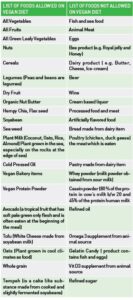
A vegan lifestyle is devoid of animal products, like honey, cheese, wool leather and pearls apart from the obvious meet, egg and milk. Today veganism is a globally accepted concept. There are hotels and restaurants on these lines serving vegan food as desired by customers. As a result, the choices and options have been diversified. Milk extracted from soya beans and nuts like almonds have been replaced in the vegan menus. Mock meats out of yam and unripe jackfruit have helped meat eaten latch on to veganism.
However, one needs to be careful while switching over to vegan diet to ensure that there is no nutrient loss in the process. High fiber diet reduces risk of dying prematurely. Including cereal fiber lowered your risk of death from chronic diseases including cancer, heart disease, respiratory diseases and diabetes found in study that followed 3,67,442 people above the age 50 for an average of 14 years.
In vegan diet, to ensure that no nutrient is lost in the process often B12, Iron and Calcium deficiencies have been noticed by researchers in people who switch over to vegan diet. Experts hence suggest people who have switched over their diet to diversity their food intake within the options available – to avoid complications. Vitamin deficiencies are common in India or abroad among women and children. However, acute deficiencies can lead to health problems.
It is essential to consume nutrient diet from different sources for optimal growth. Vitamin D3 is one of the most common deficiencies in people. It is a crucial nutrient that helps maintain bone strength and growth as well as plays an important role in the health of nervous, muscular skeletal and immune system.The most natural source of Vitamin D3 is natural sun exposure which also helps in calcium absorption by the human body. Doctor should suggest consuming milk to overcome Calcium deficiency but it is mostly ignored. Vitamin B12 can be naturally taken in green leafy vegetables like Spinach or by way of medicines.

